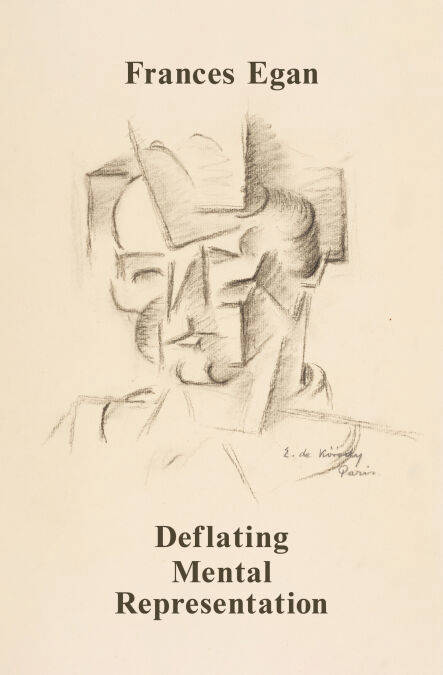
- Afhalen na 1 uur in een winkel met voorraad
- Gratis thuislevering in België vanaf € 30
- Ruim aanbod met 7 miljoen producten
- Afhalen na 1 uur in een winkel met voorraad
- Gratis thuislevering in België vanaf € 30
- Ruim aanbod met 7 miljoen producten
Zoeken
€ 34,49
+ 34 punten
Omschrijving
A novel account of the explanatory role of representation in both the cognitive sciences and commonsense practice that preserves the virtues without the defects of the prevailing two views about mental representation.
Philosophers of mind tend to hold one of two broad views about mental representation: they are either robustly realist about mental representations, taking them to have determinate, objective content independent of attributors’ explanatory interests and goals, or they embrace some form of anti-realism, holding that mental representations are at best useful fictions. Neither view is satisfactory. In Deflating Mental Representation, Frances Egan develops and defends a distinctive third way—a view she calls a deflationary account of mental representation—that both resolves philosophical worries about content and best fits actual practice in science and everyday life.
According to Egan’s deflationary account, appeal to mental representation does indeed pick out causes of behavior, but the attribution of content to these causes is best understood as a pragmatically motivated gloss, justified in part by attributors’ explanatory interests and goals. Content plays an explanatory role in the deflationary account, but one quite different than that assumed by robust representational realists. Egan also develops a novel account of perceptual experience as a kind of modeling of our inner lives by aspects of external reality and explains the role of appeal to representation in this process.
Philosophers of mind tend to hold one of two broad views about mental representation: they are either robustly realist about mental representations, taking them to have determinate, objective content independent of attributors’ explanatory interests and goals, or they embrace some form of anti-realism, holding that mental representations are at best useful fictions. Neither view is satisfactory. In Deflating Mental Representation, Frances Egan develops and defends a distinctive third way—a view she calls a deflationary account of mental representation—that both resolves philosophical worries about content and best fits actual practice in science and everyday life.
According to Egan’s deflationary account, appeal to mental representation does indeed pick out causes of behavior, but the attribution of content to these causes is best understood as a pragmatically motivated gloss, justified in part by attributors’ explanatory interests and goals. Content plays an explanatory role in the deflationary account, but one quite different than that assumed by robust representational realists. Egan also develops a novel account of perceptual experience as a kind of modeling of our inner lives by aspects of external reality and explains the role of appeal to representation in this process.
Specificaties
Betrokkenen
- Auteur(s):
- Uitgeverij:
Inhoud
- Aantal bladzijden:
- 192
- Taal:
- Engels
- Reeks:
Eigenschappen
- Productcode (EAN):
- 9780262381963
- Verschijningsdatum:
- 10/03/2025
- Uitvoering:
- E-book
- Beveiligd met:
- Adobe DRM
- Formaat:
- ePub

Alleen bij Standaard Boekhandel
+ 34 punten op je klantenkaart van Standaard Boekhandel
Beoordelingen
We publiceren alleen reviews die voldoen aan de voorwaarden voor reviews. Bekijk onze voorwaarden voor reviews.








